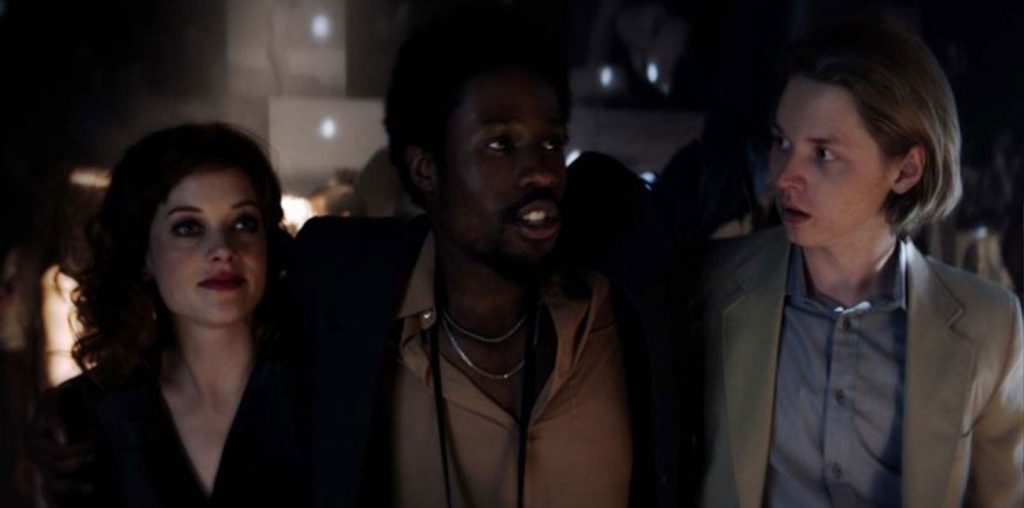
Based on the landmark case that forced American companies to implement sexual harassment policy, “North Country” examines the tribulations and often horrendous obstacles faced by one of the few women attempting to make a living by working in a Northern Minnesota iron mine. Charlize Theron plays Josey Aimes, mother of two, who finds herself in need of a job after leaving her abusive spouse. She ends up, at the behest of her friend Glory (Frances McDormand), taking a job at the local mine. She’s warned beforehand that the male miners are a little…less than receptive to the idea of working with females, but that if she just grins and bears it, they’ll eventually accept her.
It’s an interesting theory, but as time goes on and the incidents of verbal and physical harassment pile up, Josey decides to voice her concerns to her superiors. She goes to her shift supervisor first, who advises her to “take it like a man,” and from there all the way up to the company’s president, who gives her two options: stay put and suck it up, or resign. Having little option, she stays, until a particularly frightening assault does force her to quit, whereupon she seeks the services of Bill White (Woody Harrelson), local boy and former big city attorney, to bring action against the mine.
“North Country” starts off in fine form, matter-of-factly presenting Josey’s unenviable situation while also introducing us to the formidable cast, which includes Richard Jenkins and Sissy Spacek as Josey’s parents, and Sean Bean as Glory’s husband Kyle (hearing the Sheffield-born Bean speak with a Minnesota accent is probably on many people’s “things to do before I die” lists). The harassment Josey and the other women at the mine endure is, frankly, unbelievable. If it all weren’t a matter of public record, I’d think director Niki Caro was pulling our legs, but she isn’t, which makes the offenses all the more horrifying.
Unfortunately, things begin to unravel in the second half. After Josey decides to pursue the class action suit, “North Country” turns into a fairly by-the-numbers courtroom drama. Another big problem with the film is its timing; as the case portrayed here took place almost 20 years ago. In the interim, we’ve seen dozens (if not hundreds) of movies and TV courtroom dramas dealing with sexual harassment and women fighting against entrenched male chauvinism. This doesn’t dilute the facts of the case, but it does water down the emotional impact the film might otherwise have had. The final courtroom scene, rather than coaxing any sort of honest reaction from the audience (including a “twist” that won’t be hard to figure out), winds up comparing unfavorably to last week’s “Law and Order.”
Now, before anybody goes off on Theron uglifying herself again to win an Oscar, it should be pointed out that the rural trash look is not necessary unattractive to many of us. Sure, her character spends much of the film with feathered hair and bad eye shadow, but this is small town Minnesota we’re talking about here. Most such areas tend to be at least ten years behind the fashion curve, and a little grime on the face and a bandana aren’t even in the same ballpark as her “Monster” transformation.
“North Country” is an above average film, and features fine performances (Theron and McDormand are probably stone locks for more Oscar nominations), but be wary of the advertising pointing out the film’s similarities to movies like “Erin Brockovich.” There are obvious parallels with “Norma Rae” and “Silkwood,” but anyone hoping Theron will don a push-up bra and wiggle her way into a classified records room is going to be deeply disappointed, thank the gods. Unfortunately, so is anybody wanting to see something truly fresh and innovative.

